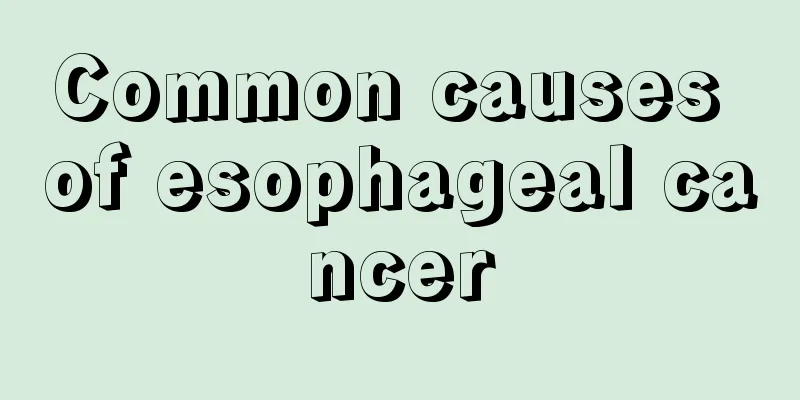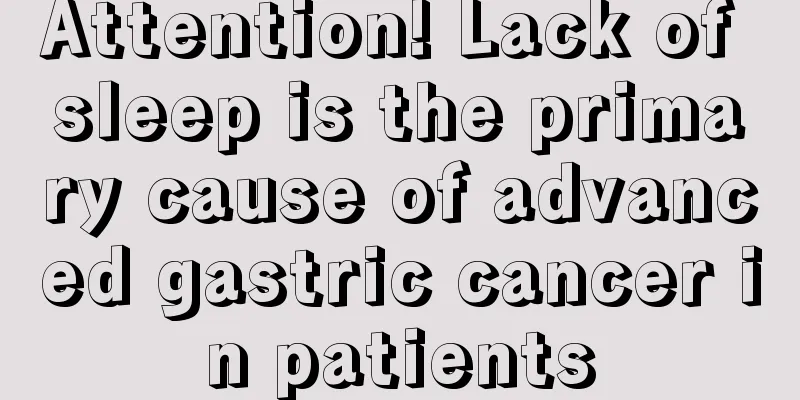Common causes of esophageal cancer

|
There are many causes of esophageal cancer. There are two main causes of esophageal cancer: one is due to changes in diet structure and living habits, and the other is caused by external factors. The following is a detailed introduction to the causes of esophageal cancer by relevant experts. (1) Damage to the esophageal mucosa: Long-term consumption of hot and coarse food, strong tea, and spicy foods such as chili peppers can cause damage to the esophageal mucosa, causing hyperplasia and metaplasia of the esophageal mucosa, which may also be one of the carcinogenic factors. Smoking and drinking strong alcohol are related to the onset of esophageal cancer. Various long-term esophagitis may be precancerous lesions of esophageal cancer. (2) Nitrosamines: Nitrosamine compounds are very strong carcinogens. Studies have shown that residents in Lin County, a high-incidence area for esophageal cancer, who eat sauerkraut, have methylbenzylnitrosamine, nitrosopyrrolidine, and nitrosoguanidine in their gastric juice and urine, which can induce esophageal cancer. It was also found that the amount of sauerkraut consumed is significantly correlated with the incidence of esophageal cancer. (3) Trace elements and malnutrition: The serum molybdenum, hair molybdenum, urine molybdenum, and molybdenum in esophageal cancer tissues of people in high-incidence areas for esophageal cancer are all lower than normal. The soil and water in the high-incidence area for esophageal cancer in Lin County lack molybdenum, and the anti-cancer effect of molybdenum has been confirmed by most scholars. Malnutrition, insufficient intake of animal protein, and vitamin AB2C deficiency are common characteristics of the diet of residents in high-incidence areas for esophageal cancer. However, esophageal cancer is not common in most high-incidence areas for malnutrition, so this cannot be a dominant factor. 4) Mold carcinogenic factors: Eating moldy food can induce precancerous lesions or squamous cell carcinoma of the esophagus and stomach in mice. This type of mold has a synergistic effect with nitrosamines in promoting cancer. This is also one of the causes of esophageal cancer. (5) Genetic factors: Esophageal cancer has a significant familial clustering phenomenon. In high-incidence areas, it is not uncommon for families to have three or more generations of the disease. However, esophageal cancer is definitely not hereditary. Instead, it is closely related to the family's eating habits. The above is an introduction to the causes of esophageal cancer. I believe everyone should have a certain understanding of esophageal cancer. If you want to know more about esophageal cancer, please consult online experts. For more information, please visit the esophageal cancer disease special topic at http://www..com.cn/zhongliu/sda/ or consult an expert for free. The expert will then give a detailed answer based on the patient's specific situation. |
<<: Breast cancer tracker--protein mapping technology
>>: How to correctly diagnose malignant lymphoma at early stage
Recommend
How to wash clothes with ink
Nowadays, many parents pay great attention to the...
Causes, hazards and relief methods of loose teeth with gaps
Loose teeth with gaps are usually caused by devia...
Do you know the disadvantages of hair removal?
In order to better show their beauty, many beauty...
How to win back my wife's heart
The divorce rate is getting higher and higher now...
What are the ways to improve your body's immunity?
I believe everyone knows the importance of immuni...
What are the methods for treating chronic pharyngitis
Chronic disease also affects many people, so if w...
Are there any contraindications for patients with hamartoma to take medicine?
If we suffer from hamartoma, in order to avoid it...
How to make the skin firm and not loose
How can you keep your youthfulness forever and ke...
The difference between overglaze and underglaze colors
Nowadays, many people have ceramic ornaments in t...
How to diagnose viral infection in blood routine test
Many people tend to confuse viral infections with...
Will you feel chest tightness and discomfort when you miss someone?
When you miss someone, you will indeed feel chest...
Pay attention to the early symptoms of cardia cancer
In life, the incidence of cardia cancer is gettin...
Does tile adhesive contain formaldehyde?
In fact, many things used in households now conta...
My skin is very oily when I wake up in the morning
If your skin is particularly oily in the morning,...
What happens if urticaria is scratched
Urticaria is a common skin disease. It is contagi...









